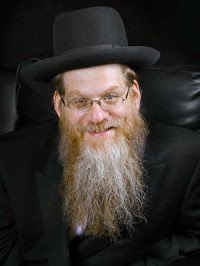
He wasn't a congregant who lingered.
Every Shabbos [Sabbath] I had to chase him in the lobby just to wish him a "good Shabbos." However, every week, I would receive an envelope with two $20 bills and the following note:
Please distribute to whoever you think could benefit from this, Phil Goldstein.
And then the call arrived.
It was Phil's daughter who lived on the West Coast. She told me her father had suffered a heart attack and wanted to see me.
I rushed to the hospital.
Phil had great difficulty communicating. However, he was able to tell me that he didn't want any eulogies and that it should be a simple graveside service.
As I was about to leave, I suddenly turned back, and said, "Phil, can I ask you just one question?"
He said I could ask whatever I want.
"What's with the two $20 bills under my door every week?"
He hesitated a moment and then said, "Rabbi, I only have one child, a daughter. Unfortunately, my marriage didn't last long and we divorced when my daughter was just three months old. My ex went to live in Los Angeles and to my ultimate regret I lost contact with my daughter for the next 17 years. Only then did we reconnect. As you can imagine it was awkward, to say the least.
"I attempted to reconcile and apologize to her, but it was very difficult. I asked her if there was any way for me to make it up to her for the years I wasn't there for her. She told me that growing up, there was one thing that really pained her. All of her friends received an allowance of $10 a week. And she was always angry at me, her father, who never was able to give her the $10-a-week allowance all the other kids had. She resented that, she told me.
"Since that day, ten years ago, I decided to donate $40 a week to someone else who might need the money. I could never make it up to my daughter, but I felt that at least another person out there could benefit from the money. That's where the two $20 bills came from."
He hesitated for a long moment. "Rabbi," he finally said, "I never was able to tell my daughter about this. Please tell her about this after I go, perhaps this will help repair our relationship."
That night Phil left This World.
When I called his daughter, she didn't seem upset. I then told her the story of the $40 a week.
She listened and then said, "Rabbi, I really was hurt by the fact that he wasn't there for me when I was growing up. However, that he actually donated $40 every week for the last ten years is really amazing. He once tried to tell me about that, however, I was too angry at him to listen. But now I understand the last letter he sent me, because in it he wrote, After I go, please use whatever money is left in my account to continue to give $40 a week. I had no idea what he meant. But I just received his last bank statement today, and I noticed that last week he withdrew $40 and that his balance was now exactly zero."
There was quiet on the line. I waited.
"I wish I had known about this ten years ago," she finally said. "Now, after looking at his bank statements and realizing how many people were helped by him, I'm pretty proud of him and realize he was really a special father in his own way."
I guess Phil was right. What he was never able to accomplish while in This World, he finally achieved when he left it.
He and his daughter were finally at peace.
More Inspiration:
• How a hut inspired humanity
• Past Present
Comment by clicking here.
Rabbi Ron Yitzchok Eisenman is the spiritual leader of Congregation Ahavas Israel in Passaic, N.J. He's also a columnist for Mishpacha magazine, where this column first appeared.



 Contact The Editor
Contact The Editor
 Articles By This Author
Articles By This Author